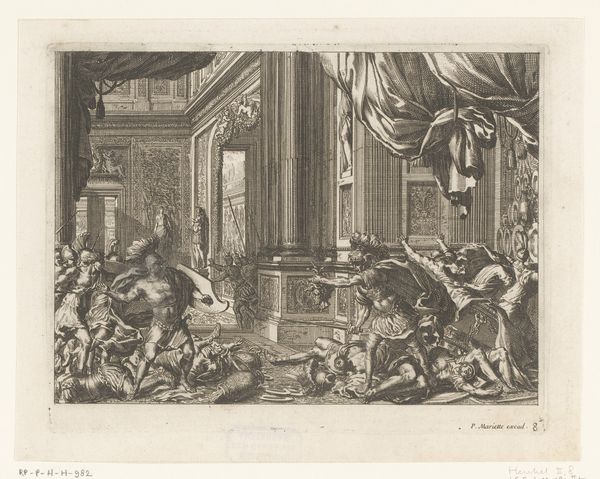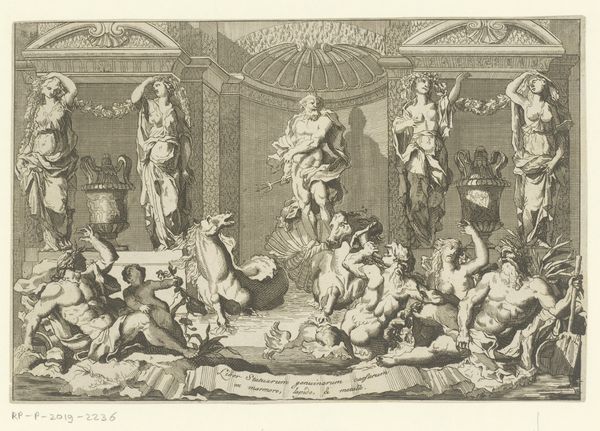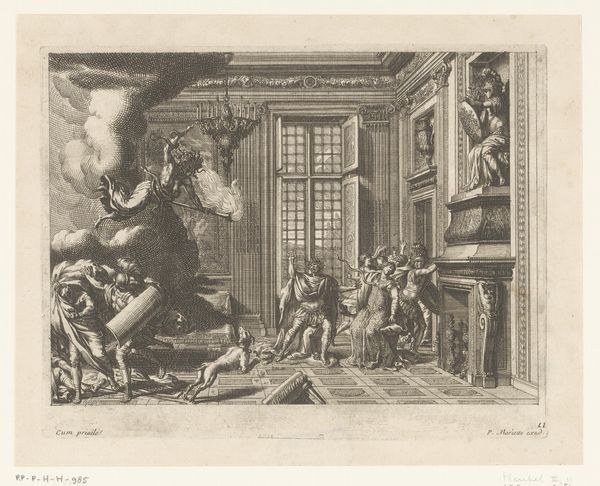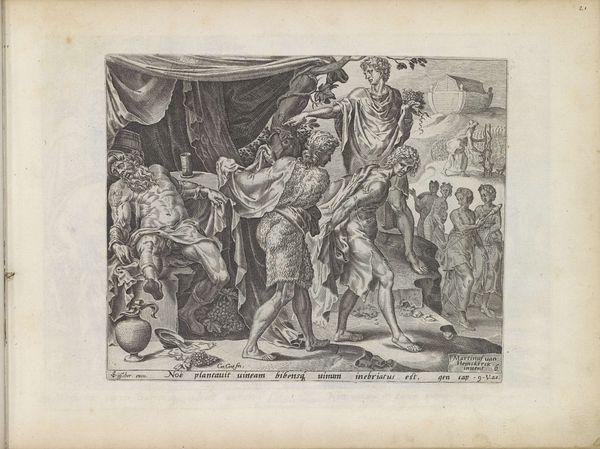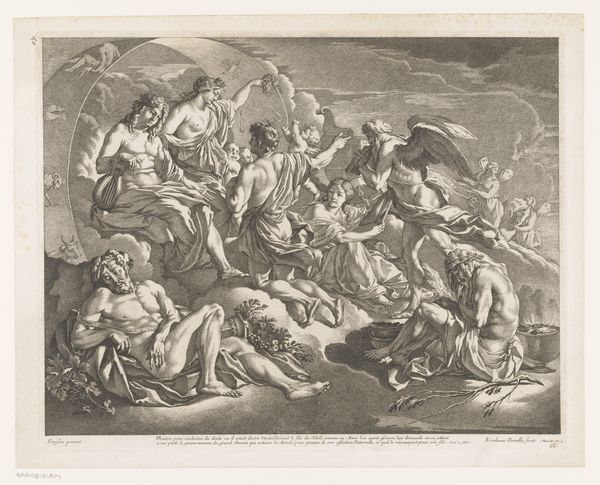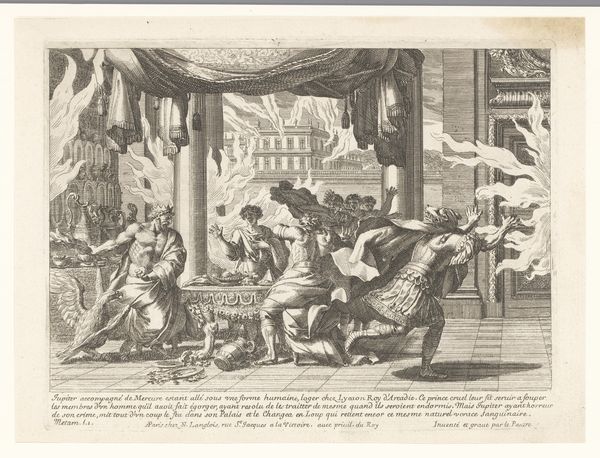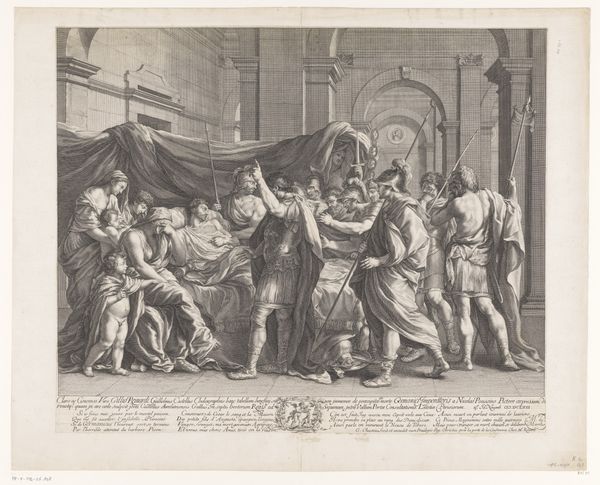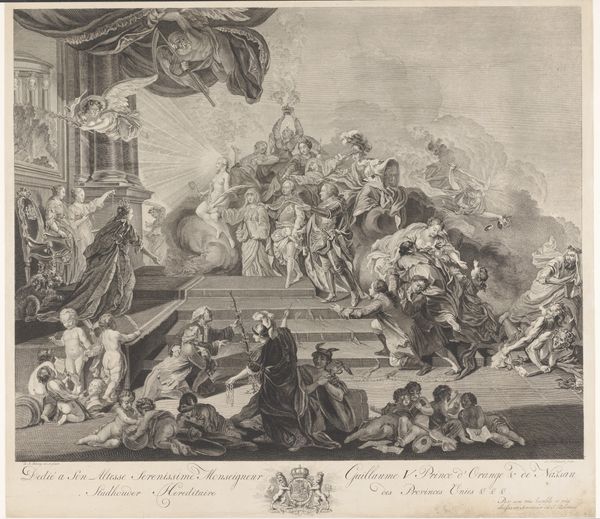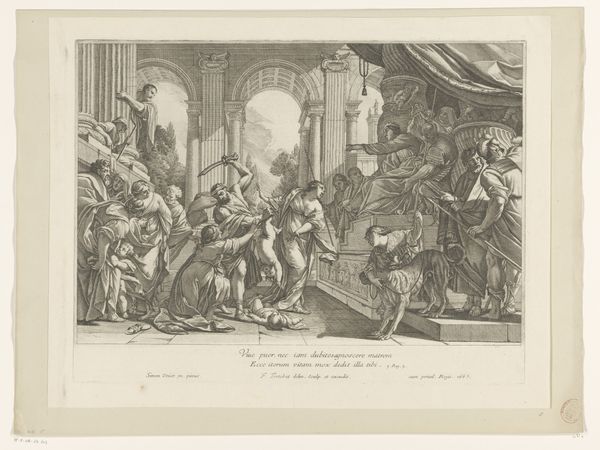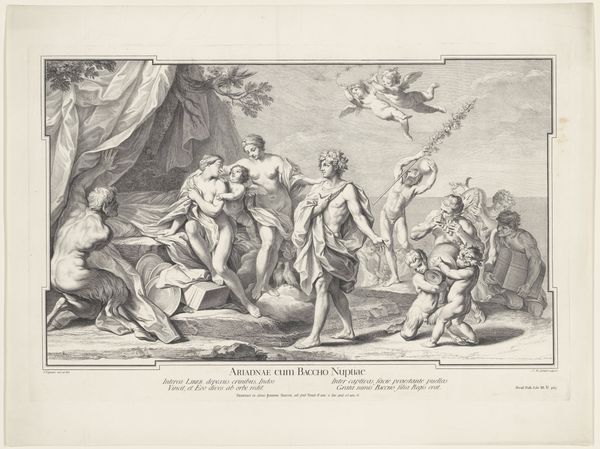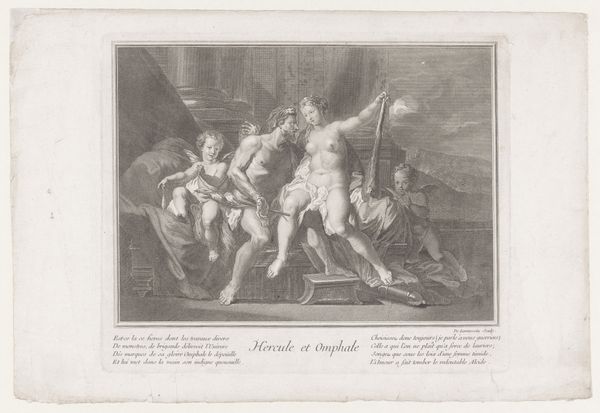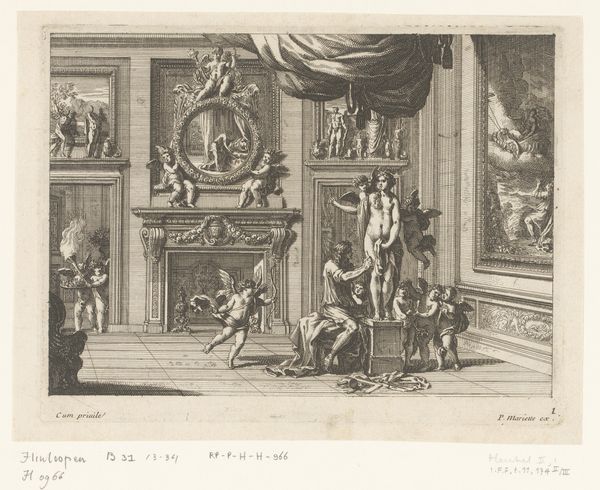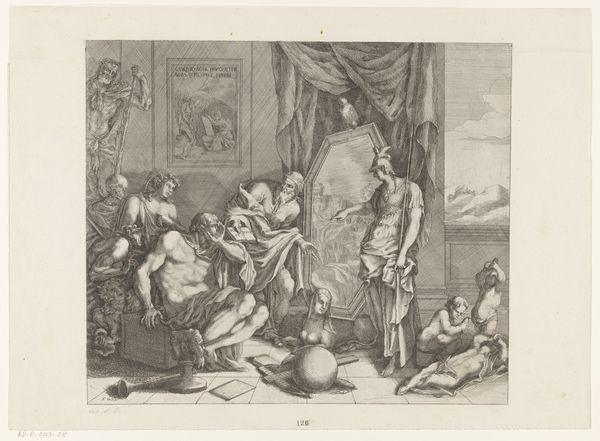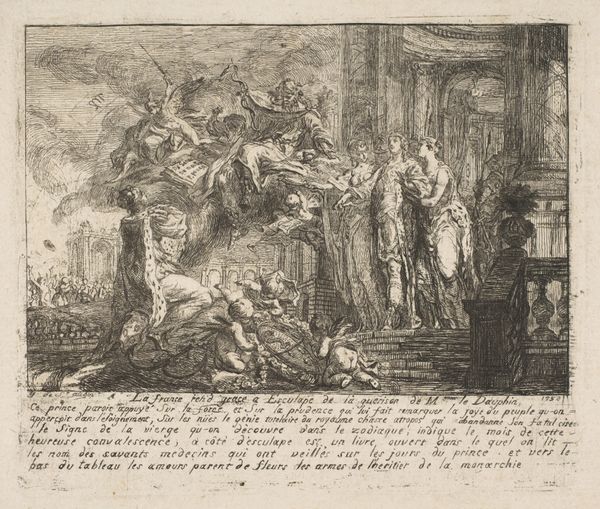
print, engraving
#
narrative-art
#
baroque
# print
#
old engraving style
#
classical-realism
#
figuration
#
history-painting
#
engraving
Dimensions: height 167 mm, width 216 mm
Copyright: Rijks Museum: Open Domain
Jean Lepautre's etching captures the moment Aegeus recognizes his son Theseus. Prominently, we see a figure floating above in the clouds. Who is she? She is the goddess Athena, whose presence symbolizes divine intervention and wisdom. Athena’s gesture, with outstretched arms, is reminiscent of figures in classical art, often seen in depictions of prophecy or revelation. We can trace this gesture back through centuries of art, each time imbued with a sense of higher knowledge or destiny. Think of similar arm positions in Renaissance paintings, signaling sacred events. Here, it serves to underscore the importance of this recognition scene. It transcends time and becomes a signal for understanding and truth across cultures. Consider the emotional intensity in the room, the tension between father and son, the anticipation of the surrounding figures. Athena's figure is not just a godly presence but also a psychological symbol that adds to the drama. The subconscious connection to past symbols enriches our understanding. These ancient gestures persist, evolving, and returning, influencing our visual language, and inviting contemplation.
Comments
No comments
Be the first to comment and join the conversation on the ultimate creative platform.
